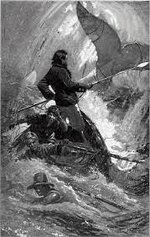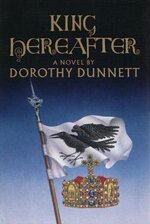Navigation
Install the app
How to install the app on iOS
Follow along with the video below to see how to install our site as a web app on your home screen.
Note: This feature may not be available in some browsers.
More options
Style variation
-
Café Life is the Colony's main hangout, watering hole and meeting point.
This is a place where you'll meet and make writing friends, and indulge in stratospherically-elevated wit or barometrically low humour.
Some Colonists pop in religiously every day before or after work. Others we see here less regularly, but all are equally welcome. Two important grounds rules…
- Don't give offence
- Don't take offence
We now allow political discussion, but strongly suggest it takes place in the Steam Room, which is a private sub-forum within Café Life. It’s only accessible to Full Members.
You can dismiss this notice by clicking the "x" box
You are using an out of date browser. It may not display this or other websites correctly.
You should upgrade or use an alternative browser.
You should upgrade or use an alternative browser.
Do we Dream of Writing A 'Mighty' Book?
- Thread starter Katie-Ellen
- Start date
- Status
- Not open for further replies.
I think a mighty book could be anything from a tome to a novella. The 'mighty' would be how deeply it affects the reader, or how far it takes the reader into its world, especially emotionally.
I think theme flies over the top of my head oftentimes. But if someone articulates the theme of a book to me, I see it in the text  I think most authors know to include theme, but how it affects the story differs.
I think most authors know to include theme, but how it affects the story differs.
C
CageSage
Guest
I think it's the readers who determine a might book. The author may think the theme is theirs, but if each person who reads it brings their own history to the story, the theme may skew one way or another for them.
Dream big, always. Great achievement comes from working to the big dream.
Dream big, always. Great achievement comes from working to the big dream.
D
Dorm Ant
Guest
I just wanna write a badass book.
Julie
Colony Member
I don't think we call books 'mighty' nowadays; the term is dated. Don't we use words such as compelling; thought-provoking; thrilling; heart-warming? It seems we segment books with specific words according to genre: the bonkbuster; the literary masterpiece; the bible du jour; the classic romance, etc.
Mighty connotes strength in all its masculine proportions; biblical when we attach the word to God and then that leads further into semantics. It's a word that seems to bypass with brute force, all the nuanced variations we have in literature as well as the effects it has on the reader. It's a thrusting out-there word with its big doing. It doesn't address the inner feelings of literature aroused in the reader. Down with mighty.
Mighty connotes strength in all its masculine proportions; biblical when we attach the word to God and then that leads further into semantics. It's a word that seems to bypass with brute force, all the nuanced variations we have in literature as well as the effects it has on the reader. It's a thrusting out-there word with its big doing. It doesn't address the inner feelings of literature aroused in the reader. Down with mighty.
- Thread starter
- #7
Down with a word, in this case, mighty, as non-germane in a discussion about writing? I'd rather open things up, really, than close them down.
The quote was of its time. Of course it's old-fashioned. Dated, absolutely, and nowadays we'd probably choose other words, epic or monumental or classic, but I don't see why it is limited in suggestion to themes of masculine proportions of strength. We may think of a mighty warrior, but a mighty warrior could be Brunnhilde or Hippolyta. Or we may think of a mighty orator, poet, artist, stone, mountain, river....ocean...storm....or a mighty problem or puzzle or conundrum.
I think of a digital publication called The Mighty, which talks about living with disability. 'Mighty' is not quite yet defunct.
@Hannah F observes, even a very slender book can be an epic. Totally. The Little Prince or Jonathan Livingstone Seagull come to mind.
Dorothy Dunnett's King Hereafter is a doorstop of a book. I'm in awe of the writer's sheer physical achievement, and wonder how, at what point in her thinking, what was the driver, the trigger, such that she decided to embark on such an immense fiction project?
This is a modern epic, or what Melville might have called mighty. portrayal of MacBeth as the man the history books suggest he really might have been, once we get away from Shakespeare, not forgetting who was his patron. But it is every bit as much the story of Lady MacBeth too, Gruoch. Themes; the power of land, the nature of power, the cost of power, the nature and power of love- and hate. Lady MacBeth tries to kill him, and he says, can it be possible you do not know I love you?
Romanticism was a movement in two disguises. There was the green and rolling Picturesque, and there was the craggy, looming Sublime, specifically characterized as androgynous, rather than inherently masculine. I guess Melville meant by 'mighty' to suggest the Sublime, and it is the sheer scope and scale of the vision that makes it epic- mighty. , the breadth of scene, the complexity of events, the depth of research but above all the emotional intensity and depth, as with Ahab's fateful obsession for the whale - and the whale's long memory.
"For Romantics, the sublime is a meeting of the subjective-internal (emotional) and the objective-external (natural world): we allow our emotions to overwhelm our rationality as we experience the wonder of creation. ... Because the sublime is emotional, it is traditionally considered something one must experience alone."
Hamnett, I thought was very good. Epic? Mighty? Maybe but I'm not sure. Is it deep? Yes, very. So why not? Others may well disagree, but perhaps because it is domestic, not panoramic in scale, and timeless but intimate in focus.
The quote was of its time. Of course it's old-fashioned. Dated, absolutely, and nowadays we'd probably choose other words, epic or monumental or classic, but I don't see why it is limited in suggestion to themes of masculine proportions of strength. We may think of a mighty warrior, but a mighty warrior could be Brunnhilde or Hippolyta. Or we may think of a mighty orator, poet, artist, stone, mountain, river....ocean...storm....or a mighty problem or puzzle or conundrum.
I think of a digital publication called The Mighty, which talks about living with disability. 'Mighty' is not quite yet defunct.
@Hannah F observes, even a very slender book can be an epic. Totally. The Little Prince or Jonathan Livingstone Seagull come to mind.
Dorothy Dunnett's King Hereafter is a doorstop of a book. I'm in awe of the writer's sheer physical achievement, and wonder how, at what point in her thinking, what was the driver, the trigger, such that she decided to embark on such an immense fiction project?
This is a modern epic, or what Melville might have called mighty. portrayal of MacBeth as the man the history books suggest he really might have been, once we get away from Shakespeare, not forgetting who was his patron. But it is every bit as much the story of Lady MacBeth too, Gruoch. Themes; the power of land, the nature of power, the cost of power, the nature and power of love- and hate. Lady MacBeth tries to kill him, and he says, can it be possible you do not know I love you?
Romanticism was a movement in two disguises. There was the green and rolling Picturesque, and there was the craggy, looming Sublime, specifically characterized as androgynous, rather than inherently masculine. I guess Melville meant by 'mighty' to suggest the Sublime, and it is the sheer scope and scale of the vision that makes it epic- mighty. , the breadth of scene, the complexity of events, the depth of research but above all the emotional intensity and depth, as with Ahab's fateful obsession for the whale - and the whale's long memory.
"For Romantics, the sublime is a meeting of the subjective-internal (emotional) and the objective-external (natural world): we allow our emotions to overwhelm our rationality as we experience the wonder of creation. ... Because the sublime is emotional, it is traditionally considered something one must experience alone."
Hamnett, I thought was very good. Epic? Mighty? Maybe but I'm not sure. Is it deep? Yes, very. So why not? Others may well disagree, but perhaps because it is domestic, not panoramic in scale, and timeless but intimate in focus.
Attachments
Julie
Colony Member
@Katie-Ellen I wasn’t trying to close the discussion down - only offering another perspective to ponder. In turn, you have responded with an eloquent argument.
I shall look up Dunnett; I’ve not read Hereafter.
I shall look up Dunnett; I’ve not read Hereafter.
Last edited:
I'm always awed by Ken Follett. He tackled multiple themes in Pillars of the Earth and was only 40. To me, that's a mighty book, not just for its size, but also the way he confronted harsh moral dilemmas - putting his characters in difficult circumstances, ones we imagine they could have faced in a historical UK i.e. what circumstances can drive a good man and husband to abandon his baby? That scene has to be one of the most memorable and heartbreaking scenes I've read in fiction.
Jonathan Livingstone Seagull was indeed a mighty book for the young teenage me. It taught me that it was ok to be different even when that different path was frowned upon. It still sits on my bookshelf, much loved by its mere presence there.
I just wanna write a badass book.
 me too
me too- Status
- Not open for further replies.
Café Life Tag Cloud
2025
agent
author
authors
blog
book
books
cafe
challenge
christmas
competition
conferences
contest
creativity
december
editing
fantasy
fiction
inspiration
life
literary
literature
litopia
love
motivation
music
new
news
novel
november
philosophy
poetry
prize
publishing
reading
self-publishing
sentence
shakespeare
short
short story
stories
story
storytelling
time
words
world
write
writer
writers
writing
Similar threads
- Replies
- 3
- Views
- 269
- Replies
- 19
- Views
- 988
Thought for the Day
Whilst I’m writing, I’m ...
- Replies
- 0
- Views
- 290
Thought for the Day
Writing is like ...
- Replies
- 1
- Views
- 344
Latest Articles By Litopians
-
When We Shot the Last Rhino
. A fabled hunter from Milan or Mombasa or somewhere raised his arms high and screamed in bloody t ...
-
On the shoulders of giants.
I’ve got to stop hanging out on X. The writing community has, yet again, been rent apart by a schi ...
-
Lit Mags for Beginners – Part Two
Last time we talked about finding publications to send your work to. Now you’ve imagined your stor ...
-
A Word from Nigel
This is Nigel. Nigel is a horse. More specifically, Nigel is a feral stallion responsible for a herd ...
-
Lit Mags for Beginners – Part One
It’s less than a year since I started writing short stories, having only worked on novel-length fi ...
-
Days Like Those: Jacob, James and the BSG
February 2018… Mrs Treaclechops and I took grandchildren Jacob (aged four) and James (aged three) ...
-
Matt-y numty had a great fall
I had an appointment in Berlin’s Mitte recently. Since then, I’ve been thinking a lot. Now, the ...
What Goes Around
Comes Around!


